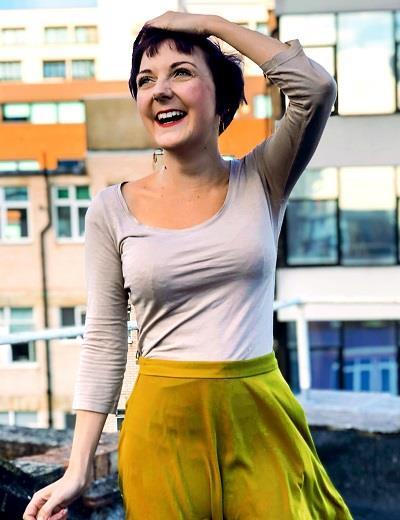
We know we shouldn’t care. We know we should rise above it. We know we shouldn’t compare ourselves to photo-shopped celebrities, despair at our grey hairs or interrogate ourselves over inches added to our waistlines. We know we shouldn’t have even a flicker of doubt about the fact that it is our character, not our outward appearance, that really matters.
But. There is a ‘but’. A ‘but’ that we are scared to admit to for fear of being dubbed shallow or idolatrous. A ‘but’ that, if we’re honest, stubbornly resists the recital of Bible verses about our value and preciousness to God.
The doubt niggles. The pauses in front of the mirror become more fraught with anxiety, and the comparison game heats up. Then the shame of being bothered by the beauty industry gets piled onto the shame of not meeting its standards. We want to be apathetic to its impossible ideals. But we also want to be able to rise to them. We don’t want people to think that it was failure that made us critical.
Why, though? Why do we let society’s obsession with skin-deep beauty get under our skin?
Taught to critique our bodies
You weren’t born caring about how toned your triceps or how straight your teeth were; how flat your stomach or how freckle-free your face was. But we all learn to narrate our bodies, with commentaries inspired by the culture in which we find ourselves. We copied the dance moves of music videos where the women who posed, dressed and moved suggestively were the ones ‘picked’ by men. We watched make-over shows where a girl got her hair straightened, took off her glasses, had her braces removed and, bam, she was all set to find true love. We picked up phrases like ‘cellulite’, ‘pear-shaped’ and ‘thigh gap’ as we flicked through magazines that claimed to be our best friend, rescuing us from rejection.
And so, we learned to see our body not as a gift but as a project, with ‘problem areas’ to improve and ‘assets’ to flaunt, as though we were commodities valued by investment bankers or under an accountant’s audit.
If centuries of women have been taught to look at themselves critically through the gaze of others (especially from a male perspective), then it is infinitely more acute now that we are in the age of the social media influencer. Online, it feels like we are all expected to look like supermodels, eat like food critics and holiday like wealthy socialites. According to the Instagram-wide philosophy of ‘pics or it didn’t happen’, the life worth living is the one worth watching. With this in mind, we stay in ‘selfie-mode’, always poised to take a picture or tweet a thought that will make people believe something about us that even we don’t truly trust. That we are beautiful. That we are significant. That we are loveable.
The God who sees
While it feels like we’re in a constant battle for affirmation online, we don’t need to hustle for God’s attention. In the Bible, the first name a human character gives to God is ‘El Roi’, which translates as ‘the God who sees me’. That name was given to him by Hagar, a servant in Abraham and Sarah’s household, as she was running for her life. Hagar knew what it was like to be seen as just a body – a body to bear a child for someone else’s legacy, a body to labour for someone else’s benefit. But she came to know in her bones that that wasn’t all she was to God (you can read her story in Genesis 16).
While fleeing from Abraham and Sarah, an angel met Hagar in the desert and told her to call her son Ishmael, meaning ‘God hears’ (v11), because God had heard her misery. The angel then told her to go back to the camp, back to an environment where she would still remain undervalued and disrespected, but emboldened now with the knowledge that Yahweh was not just their God: she too was held with infinite tenderness.
It is perhaps significant that a revelation of God’s love came most clearly when Hagar had reached the end of herself, when she had nowhere else to turn. We don’t need to bring beauty, power, wealth or even an impressive spiritual CV to the table to get God to notice us. But to feel truly seen, we do have to stand in our own skin. We have to put down whatever masks we are hiding behind – whether that’s a professional persona, an Instagram filter or layers of make-up we’re scared to be seen without – and be honest with God, and with ourselves, about who we are.
That means being open too about our insecurities – even the ones we think are silly, even the ones we know are manufactured, and all the ones we know we shouldn’t have ‘but’. The ‘but’ is real, no matter how much we try to pretend we’re able to brush off every lie embedded into the culture around us. God already knows about it, loves you through it and wants to free you from it. All you need to do is stop running. God hears. God sees.
Florence Gildea almost lost everything to an eating disorder, but somehow it opened her up to the infinite. Her debut book, Lessons I Have Unlearned, will be published in 2021 by John Hunt Publishing.






























